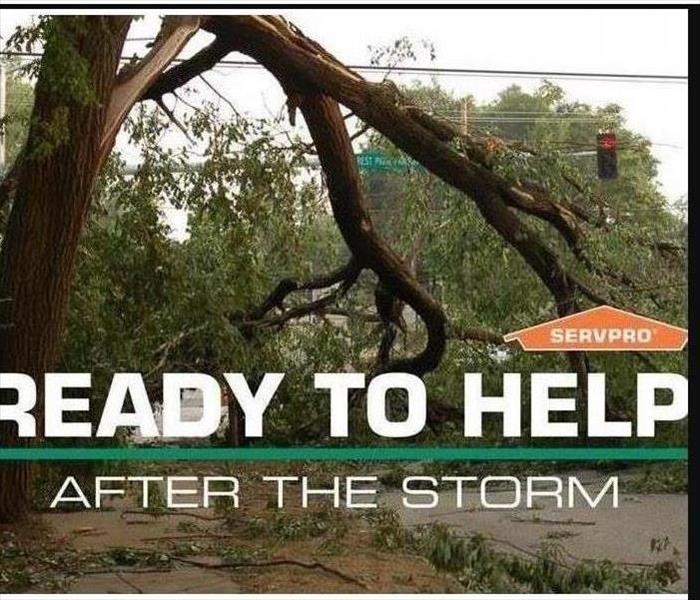Why is it important to prepare for a storm?
1/13/2022 (Permalink)
Hurricanes can shatter lives as well as damage property. Being prepared can help you, your family or your business minimize the impact of the storm. The best time to start is before the threat is imminent. Here's what you need to know.
Plan your evacuation route well ahead of time
If you live on the coast or in a mobile home, you may have to evacuate in the event of a major storm.
While you'll no doubt get instructions from the local government, it's wise to create your evacuation plan well before a disaster strikes. This way, you can know ahead of time about the nearest shelters, take your pets into account in your plan, make sure to take important papers and make a trial run.
Gather emergency supplies
During and after a storm, you may need supplies to keep your family safe and healthy. Remember that a hurricane could cut off your power and water supply. You also may not be able to drive because of damage to your car. Roads may be flooded or blocked.
Review your insurance policies
Check your insurance can help you to understand your coverage and whether it’s adequate to repair or rebuild your home, if necessary, and to replace your belongings.
Get your car ready
Make sure your car is ready before the storm hits.
- Fill your car’s gas tank.
- Move cars and trucks into your garage or undercover.
- Always keep an emergency kit in your car.
Get your home ready
- Clear your yard. Make sure there’s nothing that could blow around during the storm and damage your home.
- Cover up windows and doors. Use storm shutters or nail pieces of plywood to the outside window frames to protect your windows. This can help keep you safe from pieces of shattered glass.
- Be ready to turn off your power. If you see flooding, downed power lines, or you have to leave your home, switch your power off.
- Fill clean water containers with drinking water. You’ll want to do this in case you lose your water supply during the storm. You can also fill up your sinks and bathtubs with water for washing.
- Check your carbon monoxide (CO) detector’s battery to prevent CO poisoning
Resources:
https://www.iii.org/article/preparing-hurricane https://www.cdc.gov/disasters/hurricanes/before.html






 24/7 Emergency Service
24/7 Emergency Service